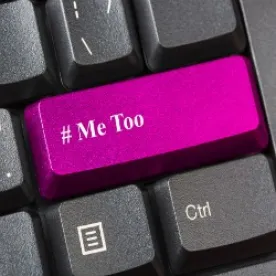In response to the #MeToo movement, a number of states have adopted legislation addressing sexual harassment claims. These include Maryland, New Jersey, New York, and Washington. Some of these state statutes attempt to ban or restrict arbitration for sexual harassment claims.
As we previously reported, in April 2018, New York State amended the New York Human Rights Law (NYHRL) to prohibit employers from requiring mandatory arbitration of sexual harassment. On June 19, 2019, the New York State Senate and Assembly passed a bill expanding the prohibitions on arbitration of sexual harassment disputes to a prohibition on arbitration for claims related to any form of discrimination or harassment.
Many observers predicted these new state statutes, like New York’s, that purport to ban employment arbitration would be preempted by the Federal Arbitration Act (FAA). A court has now confirmed those predictions. In a June 26, 2019, ruling, Judge Denise Cote of the U.S. District Court for the Southern District of New York struck a blow to the current New York law, as well as to a pending bill that seeks to prohibit arbitration of harassment claims. The court found, as expected, that state laws prohibiting arbitration are preempted by the FAA. Latif v. Morgan Stanley & Co., LLC, No. 18 cv 11528.
Background
In Latif, the plaintiff was a former employee of Morgan Stanley. The plaintiff signed an offer letter that incorporated an agreement to arbitrate all employment-related claims, including statutory discrimination, harassment, and retaliation claims. The arbitration agreement clearly stated that the FAA applied. After his discharge, the plaintiff brought sexual harassment and other claims against his employer. Morgan Stanley moved to compel arbitration of such claims, arguing that the FAA preempts the NYHRL’s prohibitions on arbitration.
Analysis
The court ruled in favor of Morgan Stanley and ordered that the plaintiff’s sexual harassment claims must be raised in arbitration. In a short, simple, and straightforward analysis, Judge Cote explained that the NYHRL’s prohibitions on arbitration sexual harassment claims “would be inconsistent with the FAA.” According to the judge, “The FAA sets forth a strong presumption that arbitration agreements are enforceable and this assumption is not displaced [by the NYHRL].”
Significantly, in a footnote, Judge Cote noted that New York’s recently passed bill seeking to expand the prohibition of mandatory arbitration of all forms of discrimination likewise “would not provide a defense to the enforcement of” mandatory arbitration agreements under the FAA.
Key Takeaways for Employers
New York’s attempt to prevent mandatory arbitration of harassment claims is preempted by the FAA for those arbitration agreements governed by the FAA. Although Judge Cote’s decision addresses only New York law, a similar analysis could be applied to other states’ new laws purporting to limit or prohibit the arbitration of employment claims, including the statutes in Maryland, New Jersey, and Vermont.
Employers may want to review their arbitration agreements to ensure they specifically invoke the FAA. Employers also may wish to consider what will happen if the FAA does not apply to a given worker. For example, the Supreme Court of the United States recently confirmed that the FAA does not cover employees and independent contractors who qualify as “transportation workers.” Businesses using arbitration agreements with employees and/or independent contractors who could be classified as transportation workers may want to consider whether to invoke a state law and, if so, which state’s law.





 />i
/>i

